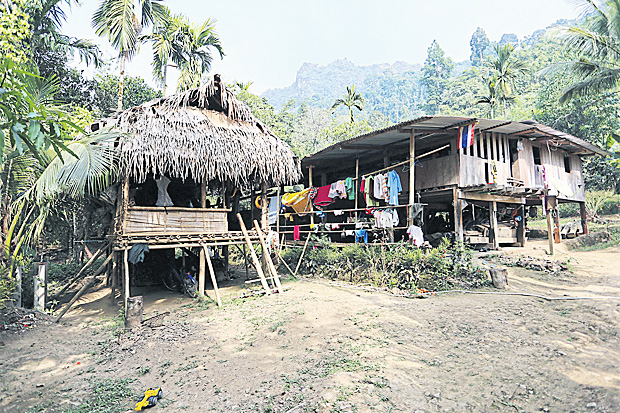
The cabinet recently approved the Community Forestry (CF) draft bill in a development which is unprecedented in Thailand’s forestry history.
To many, the approval was unexpected and showed progressiveness on the part of the Prayut Chan-o-cha administration.
It is true, however, that credit needs to be given where it is due. Nonetheless, as someone with a decade of experience in the sector, I am cautiously optimistic.
If the bill becomes law, Thailand’s forest management will be more advanced, given the recognition it gives to the legal rights of certain local communities in managing their forests.
Yet the government’s definition of community forestry as demonstrated in the bill is problematic and needs to be re-examined since it limits the community forestry principles, with participatory forest management, to only those in reserved forests, and not conservation areas.
This brings into question if those involved with the law are genuinely sincere about legal reform.
For this reason, inter alia, we as a society need to reflect on this bill and suggest ways to improve all ongoing and upcoming forestry bills. This is especially pertinent in light of recent events surrounding forest-dependent communities which, due to poverty and inequality, are marginalised.
With the absence of clear mechanisms to deal with forest land conflicts, the tension between people and forests will remain. As such, we must keep pushing for change.
So how can we work on a bill that promotes cooperation and is more widely accepted? I think there are a few main points those involved need to think about to further enhance the effectiveness of the bill when it is considered by the legislative body before becoming a law.
To begin with, we should be aware that at the heart of community forestry is the belief that the equitable sharing of power and benefits in forest management is necessary on an ecological and political level, allowing CF members the opportunity to exercise their basic rights.
For example, the sharing of power promotes stronger land tenure systems, while also securing income, food, a safe environment, and access to clean water. These outcomes are all necessary if these communities are to realise their social and political rights. Unfortunately, the bill does not adequately address this.
Moreover, even though the bill stipulates the establishment of several committees from the national to the local level, decision-making regarding the utilisation of forest resources is very much centralised, while the balance of representation remains questionable. Under such circumstances, the process of granting permission would be complicated. This issue can be avoided, however, and should involve locally based organisations in the process.
But the increase in representation alone may not be useful. To have any meaningful impact, the bill needs to ensure the capacity of the representatives and CF groups are sound. Properly planned and executed capacity building will allow for the communities to convincingly express their needs and desires.
One way to do this would be for the Royal Forest Department (RFD) to remould itself into a new role and transition away from acting as a forest controller. Instead, the RFD needs to engage the communities as an equal partner which supports and coaches CF members. To do this, the RFD should explore the CF bill’s roots and proactively engage with civil society organisations around Thailand.
In addition, the bill needs to reconsider some of its most important definitions. On the right of CF groups to use resources for subsistence, the definition is unclear and needs to be revised. CF groups should be allowed to develop their forest resources, which can provide them with vital economic benefits. This would incentivise communities to keep protecting and managing their forests sustainably.
In fact, this is judicially fair: If the local people have spent their time and resources managing the forest, they deserve the right to harvest the returns of that sustainable management. As suggested by Gen Surasak Karnjanarat, the Minister of Natural Resources and Environment, community forestry should be a means to alleviate poverty and generate incentives for forest dwellers; the current bill should reflect this and make it more explicit with clear guidance.
And finally, the most controversial aspect of this bill is how it defines the topic of discussion: community forestry. As noted, by excluding areas such as conservation areas and national parks, both of which have extensive community forestry practices, the bill is undercutting the CF principles. Community forestry is an approach to forest management, not simply a geographic designation, which means its principles should even be included in the ongoing amendments of the National Park Act and Wildlife Conservation Act.
I understand some people might be sceptical about communities’ capability to sustainably manage their forests. This, however, is a product of historical categorisation of upland communities and fails to take into account the contemporary work in the country and the region.
In conclusion, the progressive part in the recently approved CF bill is a stepping stone to a new era of forest management in Thailand. There are, however, many more steps that need to be taken to ensure the government’s firm commitment to the principles of CF principles that must be reflected in this bill. Only by proceeding along this path can we achieve our common goal of protecting local people and conserving our beautiful forests.
Warangkana Rattanarat is Thailand Country Programme Director for RECOFTC - The Center for People and Forests.